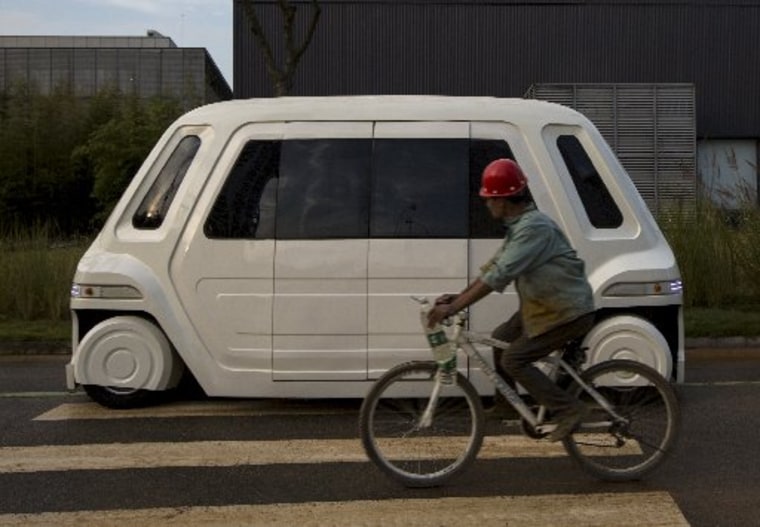Automakers, not technology companies, are in the driver’s seat in developing self-driving, "autonomous" cars, and Japan’s Toyota Motor Corp. is best positioned to lead the way, according to a new report on patents for the fast-evolving technology.
As automakers enter agreements with Silicon Valley companies to develop self-driving cars, Tesla Motor and Apple would make logical partners, the report says.
The report, by the Intellectual Property and Science division of Thomson Reuters, is based on a detailed analysis of patent filings by automakers and tech companies for autonomous-car technology. The findings illuminate the challenges for both established automakers and Silicon Valley companies as they compete to profit from moving people around in a world that is increasingly congested and concerned about carbon emissions.
The global auto industry is in the midst of three simultaneous, and interconnected, technology revolutions. The first is the quest for cleaner alternatives to internal-combustion engines. The second involves connectivity and linking cars to information or data services. Lastly, the autonomy revolution is the effort to develop self-driving cars that could enable services in which electric cars connected to the Web can be summoned to provide rides on demand.
Related: Ford's Fleet of Robot Test Cars Swells to Thirty Vehicles
"Automakers aren’t as good as technology companies in tooting their own horns," Tony Trippe, principal author of the report, told Reuters in an interview. "But when you look at the patent data, the automakers are all over this."

Toyota is, far and away, the global leader in the number of self-driving car patents, the report found. Toyota is followed by Germany’s Robert Bosch GmbH, Japan’s Denso Corp., Korea’s Hyundai Motor Co. and General Motors Co. The tech company with the most autonomous-driving patents, Alphabet Inc's Google, ranks 26th on the list.
The report comes as auto and technology industry executives are gathering at the annual Consumer Electronics Show in Las Vegas, where alliances to advance autonomous driving and connected vehicles will be central topics. GM said on Monday it will invest $500 million in Lyft as it forges a Detroit-Silicon Valley partnership with the ride-sharing service to develop an on-demand network of self-driving cars.
Related: Lyft, GM Forge $500M Partnership Toward Self-Driving Cars
Toyota, the Thomson Reuters report found, has more than 1,400 patents on autonomous-driving devices, more than twice as many as any other company. One recent Toyota patent application, for example, is for software that avoids a car’s self-driving system being switched off, and thus defaulting to “manual mode” in which the driver controls the car, unless the driver intends to turn off the system.
Related: Tesla Who? Faraday Reveals Futuristic Electric Car
The raw number of patents does not necessarily equate to leadership in developing self-driving cars, Trippe said. Non-U.S. companies tend to be more aggressive in filing patent applications than American companies. The quality of patents is also important, since not all are created equal. Another potential limitation of the report is the 18-month lag time between patent filings and when the filings are published for the public. In reality, driverless-car development will require alliances between automakers and technology companies, even though both sides will try to gain the upper hand in partnerships.
As the race to develop self-driving cars heats up, automakers are also introducing more "semi-autonomous" driving systems that handle tedious or tricky situations. Audi, for instance, is expected to use the CES show to outline progress on a system that allows cars to pilot themselves in traffic jams at low speeds.